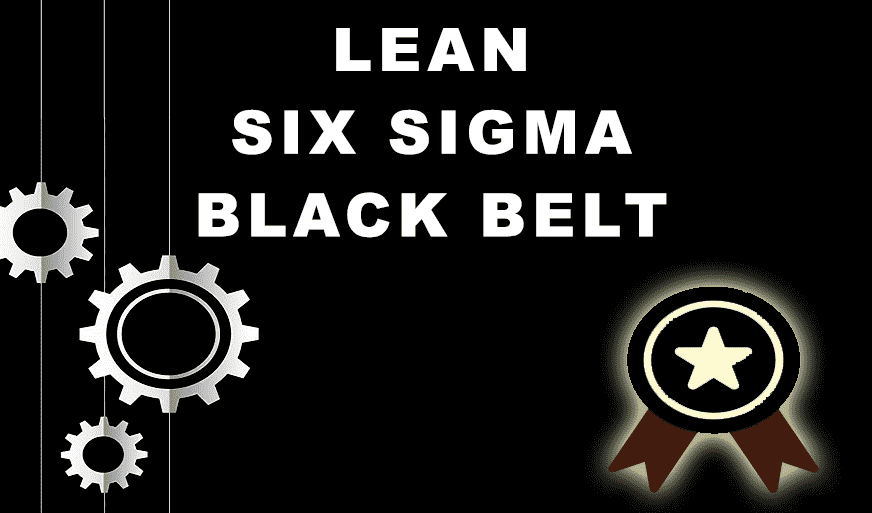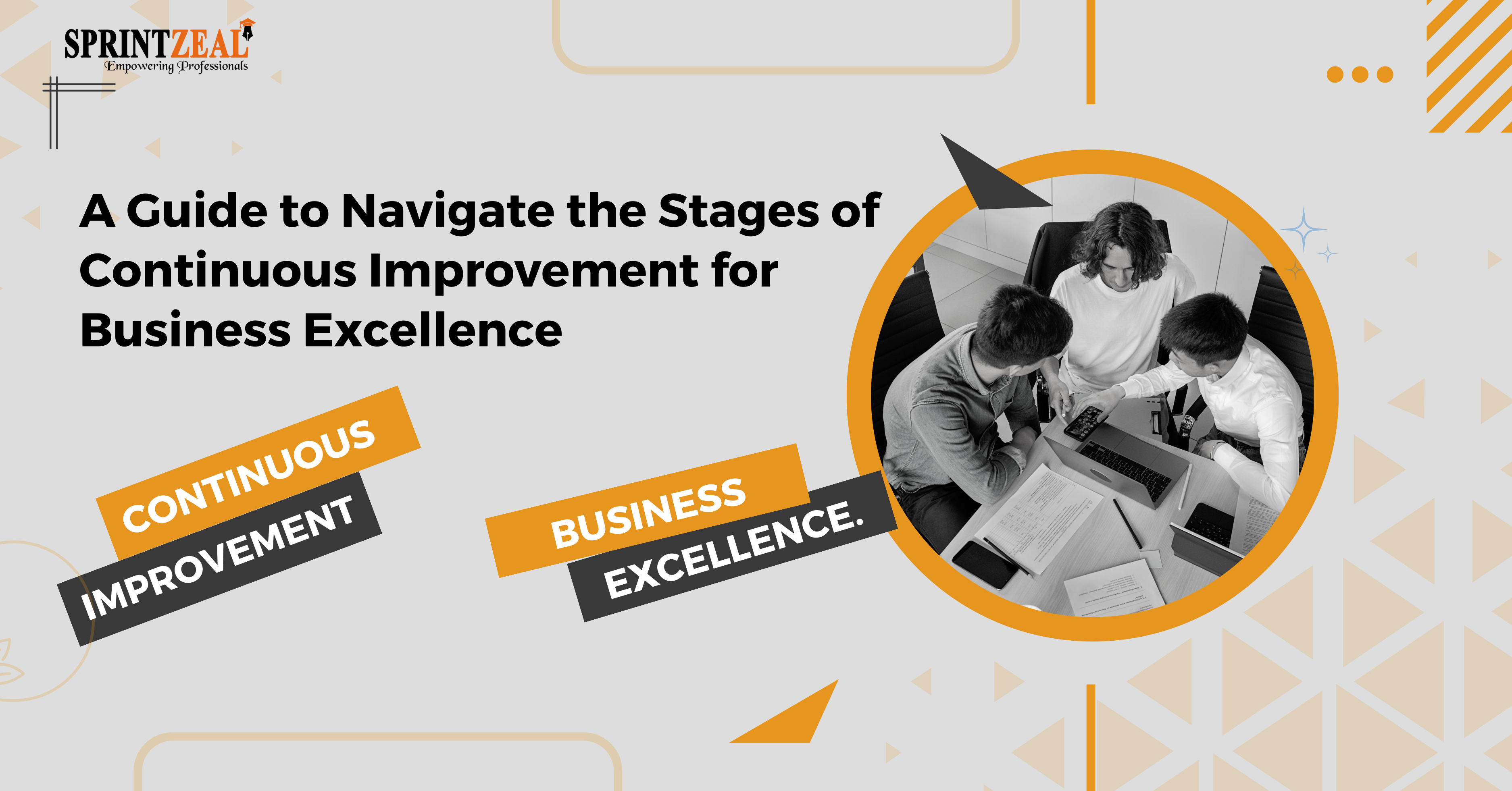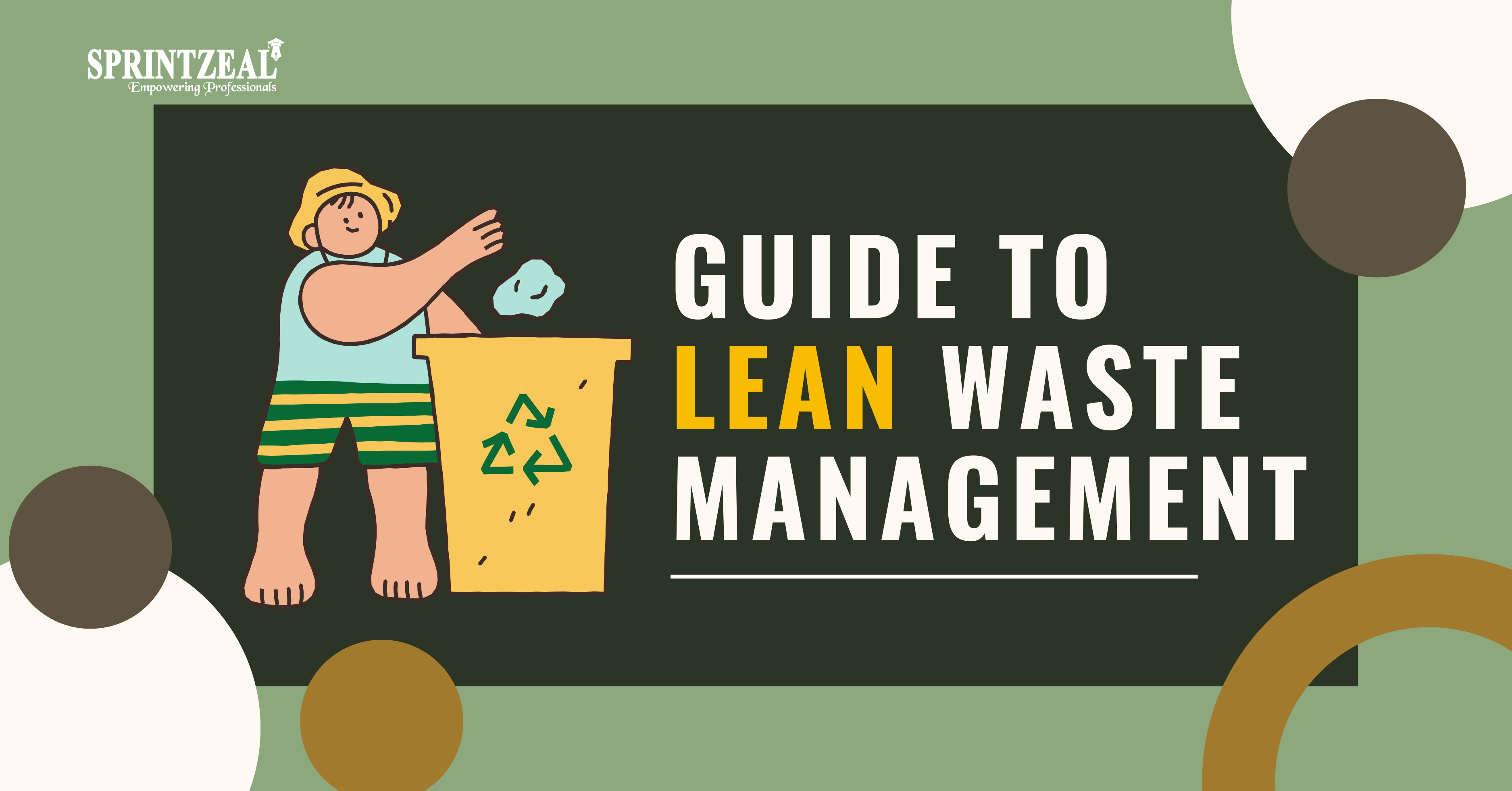How to become a Quality Analyst
-
 By Nandini
By Nandini - Published on Jan 11 2024

Table of Contents
- How to Become a Successful Quality Analyst in 2022
- What is a Quality Analyst?
- Job Description of a Quality Analyst
- Roles / Responsibilities & Skills of a Quality Analyst
- Requirements To Become A Quality Analyst
- Best certifications for Quality Analysts
- Exploring Specialized QA Roles
- Industry-Specific QA Considerations
- FAQs
- Conclusion
How to Become a Successful Quality Analyst in 2022
Quality Analyst is one of the popular trends of today's time, which has immense growth. This is quite an eye-catching job amongst the youth who love experimenting and dealing with challenges. With true dedication and hard work, one can become an expert in being a Quality Analyst in no time. Quality assessments play a vital role in product development.
What is a Quality Analyst?
A Quality Analyst is a person who is responsible for a project, be it the planning before starting the project to executing it to seeing it as a final product. The quality analyst is the one who sees it through the project to make principles to implement it and makes sure everyone else does the same.
Any organization, especially software companies, has a great connection with the Quality Analyst. They are given the task to accomplish the project from the initialization to the completion, conducting manual testing and automation. They ensure all the functions are working properly or not, and if not, they do corrective measures.

The Candidates should ensure that the final product meets all the basic requirements described by the client and make sure there are fewer errors in the software. Before the product gets completed and dispatched, the analyst should also check on quality management.
Job Description of a Quality Analyst
The basic job description of a Quality Analyst is to have the ability to solve problems. With a sharp mind and foreseeing trait, the Analyst should perform efficiently, keeping the product quality in check. The Analyst should be multi-tasked; at no point, he/she can back out from a complex situation. Evaluating products, systems, and software to ensure that they are fault-free and meet all the organization's quality standards.
The concerned individual should equip ideas in a creative forum.
The candidate should be cooperative and diligent and must have the power to give and positively take criticism or suggestions.
Planning, Developing, Designing, Executing a plan testing the plan practically, and processing the plan for the project is quite tasking. Making the product user-friendly, functional, cost-effective, and completely relying on the guidelines is one of the goals a Quality Analyst should follow.
Job Duties
The main objective of a Quality Analyst is to test, troubleshoot and solve the problem. The analysts are trained in software development and testing of the whole phase. The Quality Analyst duties include:
- Testing various applications and software.
- Putting up all the documents in person.
- Finding and testing products and correcting the issues.
- The most important part is the troubleshooting.
- Dealing with the errors in the software.
The relationship between the QA Analysts and the Software Development team is quite strong, dealing with testing. The industry range of a QA analyst is quite vast, be it mobile banking or financial sector, or Manufacturing Industries are needed everywhere.
Roles / Responsibilities & Skills of a Quality Analyst
There are various roles and responsibilities of a Quality Analyst. Those are some vital points to be taken into consideration before getting yourself into the job. Following are the discussions on the varied roles and responsibilities:
The basic Quality Analyst Role is to be present in the testing phase of the analytical role and meet the company's standards and if it is as per customers' requirements.
There are some important Quality Analyst Responsibilities which are as follows:
- To ensure that all requisites objectives are met as per the planning and protocols.
- To implement, monitor, and test scripts to check whether they are reliable, functioning well enough, giving a good performance, and possessing better service or product quality.
- To be able to identify defects and find quick remedies within the process of production.
- To implement and monitor and take corrective measures to ensure that quality standards of the product and services are maintained.
- To Compile and analyze all those statistical data and make a report.
- To devise forums and tactics to develop higher and more substantial methods for betterment in all aspects.
- Following up with customer grievances and anything regarding product issues.
- Prolifically analyzing the terms and patterns based on the secretive methodologies while a team meeting.
QA analysts must possess knowledge about algorithms and soft skills, i.e., critical thinking and solving problems in daily life. The candidates are the ones who test the software and take measures, so it is advisable to know the software Agile, Lean, or DevOps. Coding is also something the Analysts must know.
Quality Management Skills required for a Quality Analyst are as follows:-
- Analyzing the situation at work.
- Solving the problems and taking preventive measures.
- Thinking critically about situations.
- Knowledge about SQL, Java, Python
- Development of Software’s
- Testing products and services
- Managing Projects
- Study Mathematics and Physics
Several Management Challenges need to be aided properly by the responsible individuals. One must be aware and competent enough to take those challenges and face them. Quality Management Skills may not be the same for everyone, but they shouldn't be less too in any factor. Hard work, Efficiency, and Honesty is a traits of a successful person.
Requirements To Become A Quality Analyst
- Completing the studies with science, especially Science, Mathematics, and Statistics. Having basic knowledge about Programming languages, Operating system software, Network Technology, Logical design, Information management, Files, and databases. You can even take up Computer Science or Architecture.
- Get experience as a quality analyst. Enroll yourself in any organizational internship which will enable you with basic quality analyst information. Gaining some experience will not only boost your CV but also boost your confidence.
- Getting a software testing certification. There are various professionalized certifications available to get you a thumb up on your CV. Get yourself enrolled in any prominent institute and get yourself a Quality analyst certification before plunging into the professional world.
Every profession today expects professionals to be certified and trained before they dive into the corporate world. Even if you are highly qualified, a certain certificate is needed to prove your credentials. Similarly, Quality analyst training is essential. The institute will provide all the Quality management training and mold you into a perfect professional before starting your career. Quality Analyst training from a reputed institution will prepare you for a high-paying job as well.
Quality Analyst training courses will help you avoid problems when delivering any solutions or services to customers. There are various Quality Analyst courses available in the market, but one should be wise enough to choose the best out of all.
The Quality Analyst certification path is just a step toward the vast process. One needs to choose diligently and be careful while choosing the right course to keep away from hassles.
Best certifications for Quality Analysts
Popular Quality Analyst certification courses are available in quality management training. There are several certifications but the popular

The Best certifications for Quality Analysts are as follows:-
Lean Six Sigma Green Belt Certification
It is known to be one of the Best Certifications for Quality Analysts. All Quality supervisors, analysts, quality engineers, or even system managers are eligible for this certification course.
Various experts hint at the attachment of lean principles and make a former path. Quality Professionals are seeking to gain a Lean Six Sigma Green Belt Certification. This certification includes real-life case studies and practical involvement more than theoretical.
To obtain the Lean Six Sigma Green Belt certificate, candidates require a minimum score of 70% to pass. The exam seeks no particular assessment in an orderly manner.
The Lean Six Sigma Green Belt Exam is a 100 question test to be attempted within 3 hours. 10 non-graded questions and 20 multiple-choice and true/false questions appear in the exam.
Six Sigma Green Belt Certification
The Six Sigma Green Belt is extended support that falls under the supervision of a Six Sigma Black Belt. It helps in analyzing and solving quality problems and is also involved vigorously in quality improvement projects one who has the minimum experience of three years with an idea about Six Sigma tools and processes.
Candidates will have to work full time and will be paid accordingly. None of those who are interested in a paid internship can apply for this course. Educational waivers are not eligible to appear for this exam.
The SSGB online examination consists of one part, where 110 questions will be there. Only the English language. The time limit given is 4 hours and 18 minutes.
The SSGB written examination consists of one-par, with 100-question exam papers that will be finished in 4 hours. The question paper gives options for English, Spanish, and Mandarin in certain locations where regional languages are allowed.
The Six Sigma Green Belt Certification examinations are like open book exams where examinees can bring their reference materials and calculators.
Six Sigma Black Belt Certification
Six Sigma Black belt offers a complete understanding of all the aspects that define, measure, analyze, improve, and control Six Sigma principles. They provide basic knowledge about lean enterprise concepts, give appropriate hints to identify non-value-added elements, and allow specific tools.
The Candidates must work full-time and will be paid accordingly. Paid internships or any other coursework are not eligible to work under this course.
The Six Sigma Black Belt Certification is a professional program that explains the Six Sigma philosophies and principles, systems, and tools. This course teaches the candidates leadership, team dynamics, and roles and responsibilities as a team as a whole.
The examination time limit is 3 hours with 150 questions. This is an open-book examination.
Lean Six Sigma Black Belt Certification
The Lean Six Sigma Black Belt Certification is a professional course well acquainted with the Lean Six Sigma Methodology, which helps in leading complex improvement projects. A Lean Six Sigma Black Belt gives a thorough understanding of all the Lean Six Sigma Method aspects.
A Lean Six Sigma Black Belt lets the candidates implement, perform, interpret and apply Lean Six Sigma at an advanced level of proficiency.
TÜV SÜD's Certified Lean Six Sigma Black Belt suits the senior management, team leaders, and quality assurance engineers.
Professionals who want to implement Lean concepts, Design for Six Sigma, D-M-A-I-C, and Total Productive Maintenance under the Lean Six Sigma Black Belt certification program.
Candidates need to attempt Multiple Choice Questions via the online examination. 180 minutes remain the total duration with 100 MCQs. The language offered is only English, and all candidates are required to score above 70%.
Six Sigma Yellow Belt Certification
The Six Sigma Yellow Belt certification is touted to give knowledge about Six Sigma. Those who have less interest or skill can opt for this course to develop foundation knowledge. Six Sigma Yellow belt certification is eligible for new entrant employees who are yet to get the taste of the professional world. The certification needs unbiased personalities and no particular certification.
The Six Sigma Yellow Belt Exam is a 60 question offline exam. The time limit given is two hours, and it has some non-graded questions as well. The exam seeks vital core knowledge about the DMADV procedure along with the DMAIC principle. It hires or acknowledges several managerial working capabilities.
The Six Sigma certification aids various candidates with their application to project management. Apart from the exam, the course training assists in developing crucial parts. Thus, the pattern needs summation and proper protocols for official decorum.
Exploring Specialized QA Roles
While the core essence of a Quality Analyst (QA) revolves around ensuring quality and excellence, the field itself offers a verity of specialized roles. Each catering to specific niches and demanding unique skillsets QA path offers diverse specialized roles that ignite new levels of passion.
Let's explore some of these specialized QA roles, helping you discover your perfect fit within the QA ecosystem.
1. Automation Engineer:
Tools like Selenium, Appium, and Cypress will become your trusted allies as you breathe life into testing frameworks and liberate your fellow QAs from the confines of repetitive tasks.
2. Performance Tester:
Tools like JMeter, LoadRunner, and NeoLoad will become your instruments as you pinpoint performance bottlenecks and orchestrate seamless user experiences, even amidst peak traffic.
3. Security Tester:
Master tools like Burp Suite, ZAP, and Metasploit, transforming yourself into a formidable cybersecurity warrior.
4. Data Analyst:
Tools like Excel, Power BI, and Tableau will become your trusted companions as you uncover trends, identify patterns, and drive data-informed decision-making within the QA process.
5. UI/UX Tester:
Tools like Figma, Sketch, and UsabilityHub will become your tools of choice as you dissect layouts, analyze user flows, and advocate for intuitive, user-centric design.
Remember, your ideal specialized QA role lies at the intersection of your passions and skillsets.
Industry-Specific QA Considerations
While the core principles of QA remain constant, the challenges and approaches can differ greatly depending on the industry you're in.

Healthcare QA: Where Accuracy is Life-Saving
QA analysts here prioritize data accuracy above all else, ensuring strict compliance with regulations and rigorous testing protocols. Familiarity with HIPAA regulations and healthcare-specific tools like Cerner Millennium is key.
Finance QA: Safeguarding Your Money and Data
QA analysts focus on rigorous security testing, fraud prevention mechanisms, and ensuring compliance with financial regulations like PCI DSS. Mastering tools like Burp Suite and understanding financial transaction protocols are crucial for keeping finances secure.
E-commerce QA: Making Every Click a Delightful Journey
In the fast-paced world of online shopping, user experience is king. QA analysts prioritize performance testing, ensuring seamless checkout processes, and guaranteeing accurate product information.
Gaming QA: Where Bugs are Beasts to Slay
The gaming industry thrives on delivering immersive, bug-free experiences. QA analysts focus on performance testing under heavy loads, compatibility across platforms, and ensuring engaging gameplay mechanics. Understand game engines like Unity and Unreal, with a passion for gaming.
AI/ML QA: Testing the Unpredictable Future
The ever-evolving world of AI and Machine Learning (AI/ML) presents unique challenges for Quality Assurance. Analysts focus on data quality and bias detection, ensuring AI models are understandable and ethical considerations are met. Understanding AI/ML concepts and tools like TensorFlow are your tools of the trade.
FAQs
Is quality analyst a difficult job?
The difficulty depends on your skills, chosen specialization, and project complexity. But the satisfaction of ensuring software quality and user experience makes it rewarding!
Can a fresher become a quality analyst?
Absolutely! Freshers with analytical skills, tech passion, and eagerness to learn are welcome. Entry-level roles like Junior QA provide the perfect platform to gain experience and build your skillset.
What qualifications do you need to be a QA?
A Bachelor's degree in Computer Science or related fields is often preferred, but not always required. Strong analytical and problem-solving skills, excellent communication, and a keen eye for detail are essential. Familiarity with testing tools and methodologies like agile and DevOps is a plus.
How long does it take to become a quality analyst?
It depends on your learning pace and career path. With a focused approach and relevant experience, you can become a Junior QA within 6-12 months. Advancing to senior roles takes more time and specialized knowledge.
How do I become a quality analyst with no experience?
Start by acquiring basic knowledge through online courses and tutorials. Participate in hackathons and online coding challenges to hone your skills. Network with QAs and attend industry events to learn from professionals. Finally, consider volunteer projects or freelance testing gigs to gain practical experience and build your portfolio.
Conclusion
Before giving a final statement on analysts, I would prefer to state that Quality Analyst is an emerging profession that gives both scope and success to candidates. With the world having numerous varied courses and subjects to deal with, you get to know about something you have never heard before every other day. The Quality Analyst offers a good path to increase your knowledge and expand your wings.
Popular Certifications for Quality Analysts in 2021:
Six Sigma Yellow Belt Certification
Lean six sigma green belt certification
We, Sprintzeal, are an Accredited Training Partner of the International Association for Six Sigma Certifications (IASSC). To know about six sigma certifications and to find the six sigma course that fits your career goals, chat with our course expert.
Subscribe to our Newsletters
Popular Programs
Trending Posts
A Deep Dive into the Power of Lean Continuous Improvement Process
Last updated on Nov 14 2023
Secret to Unlock Organizational Excellence: Stages of Continuous Improvement
Last updated on Nov 27 2023
Lean Waste Management: The Ultimate Guide 2023
Last updated on Dec 13 2023
Six Sigma Certifications - Reasons Why you Should Get Them
Last updated on Aug 18 2022
5 Lean Continuous Improvement Principles to Supercharge Your Operations
Last updated on Jan 2 2024
Understanding Lean Manufacturing's Pros and Cons
Last updated on Dec 30 2024
Categories
- Agile Management 54
- AI and Machine Learning 42
- Big Data 53
- Business Management 51
- Cloud Computing 44
- Digital Marketing 56
- Information Security 8
- IT Hardware and Networking 17
- IT Security 103
- IT Service Management 29
- Leadership and Management 1
- Microsoft Program 2
- Other 43
- Programming Language 31
- Project Management 162
- Quality Management 75
- Risk Management 8
- Workplace Skill Building 2
Trending Now
Top Career benefits of Lean Six Sigma Green Belt
ArticleLean methodology, Six Sigma methodology and Lean Six Sigma Explained
ArticleSix Sigma Black Belt Certification – Value and Career Benefits in 2024
ArticlePareto Chart in Six Sigma - Explained
ArticleQuality Management Interview Questions 2024
ArticleSix Sigma Certification Guide - A Professional's Guide
ArticleSix Sigma Yellow Belt Certification - Six Sigma for Beginners
ArticleQuality Control Explained – Six Sigma
ArticleTotal Quality Management - A Complete Guide for Beginners
ArticleQuality Assurance in Six Sigma Explained
ArticleQuality Assurance vs Quality Control
ArticleSix Sigma Certification – Everything you Need to Know About Getting Certified
ArticleLean Six Sigma on Resume for Rewarding Career Benefits
ArticleQuality Manager Interview Questions and Answers for 2025
ebookService Delivery Manager Interview Questions and Answers (With Examples)
ArticleSix Sigma Interview Questions and Answers 2024
ArticleA Supply Chain Management Guide to Mastering Logistics End to End
ArticleSenior Quality Manager Interview Questions and Answers 2024
ArticleTop 30 Quality Analyst Interview Questions and Answers 2025
ArticleFinancial Analyst Interview Questions and Answers 2024
ArticleRisk Manager Interview Questions and Answers 2024
ArticleCompliance Manager Interview Questions and Answers 2024
ArticleOperation Manager Interview Questions and Answers
Article5 Lean Continuous Improvement Principles to Supercharge Your Operations
ArticleHow to Become a Quality Manager - Career, Job Scope and Certifications
ArticleEssential Components of a Quality Management System
ArticleSix Sigma Certifications - Reasons Why you Should Get Them
ArticleTop Qualities of a Good Manager and a Leader
ArticleLearn about Statistical Process Control (SPC) and its top applications
ArticleCost of Poor Quality - A Detailed Guide
ArticleImplementing 5S Methodology for Better Work Efficiency
ArticleWhat Is Lean Management?
ArticleBest Six Sigma Books in 2024
ArticleLeadership vs Management - The Ultimate Guide
ArticleQuality Assurance Plan - Six Steps To Quality Assurance Plan
ArticleOperational Planning Creation, Key Elements and its Benefits
ArticleA Complete Guide to Product Life Cycle Stages 2025
ArticleSix Sigma tools for DMAIC Phases
ArticleWhat Is Lean Manufacturing?- An Overview
ArticleThe Lean Continuous Improvement Model: A Comprehensive Guide
ArticleDMAIC vs. DMADV: Key Differences and Choosing the Right Six Sigma Methodology
ArticleA Deep Dive into the Power of Lean Continuous Improvement Process
ArticleLean Continuous Improvement Methods for Business Excellence
ArticleIntroduction to Lean Manufacturing- Definitions, Framework, and More
ArticleUnderstanding the Key Principles of Lean Manufacturing
ArticleSecret to Unlock Organizational Excellence: Stages of Continuous Improvement
ArticleLean Continuous Improvement: A Detailed Guide to Mastering Organizational Quality
ArticleLean Waste Management: The Ultimate Guide 2023
ArticleA Deep Dive into Lean Continuous Improvement Tools
Article8 Wastes of Lean - Strategies for Identification and Elimination
ArticleThe Ultimate Guide to Lean Manufacturing
ArticleUnderstanding Lean Manufacturing's Pros and Cons
ArticleLean Waste Reduction Strategies: Boost Efficiency and Cut Costs
ArticleTop 10 Lean Manufacturing Tools for Optimal Productivity
ArticleBeyond the Basics: Benefits of Lean Continuous Improvement
ArticleWhat are Quality Standards? | A Guide to ISO Standards
Article7 Important Types of Quality Management System
ArticleA Comprehensive Guide to Quality Management Systems
ArticleISO 9001 Standard: Benefits and Certification
ArticleBenefits of QMS Certification for Your Business
ArticleStep-by-Step Implementation Guide to ISO 9001
ArticleThe Ultimate Guide to ISO 9001: Boosting Quality and Certification Success
ArticleQuality Management System – QSM Approaches and Methodologies
ArticleHow to Effectively Implement a Robust Quality Management System?
ArticleExplaining QMS Documentation Structure: Benefits and Best Practices
ArticleWho Needs ISO 9001 Certification and Why?
ArticleKey Elements of ISO 9001:2015 Quality Management System
ArticleOvercoming Common Challenges in ISO 9001 Certification: Tips and Best Practices
ArticleBest Quality Management Tools
ArticleTotal Quality Management (TQM) vs. Six Sigma
ArticleQuality Manager Salary: What Freshers & Experts Earn in 2025
ArticleCertified Scrum Product Owner: Job Roles And Responsibilities
ArticleTips for Continuous Integration Testing: Streamlining QA
Article10 Quality Management Strategies Adopted by Top Managers
Article

















